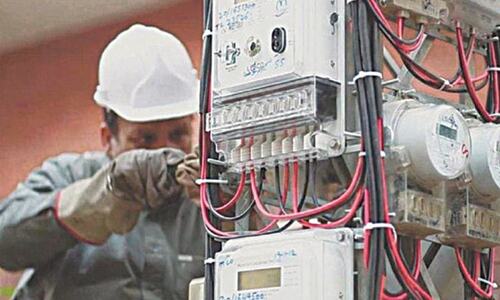TOKYO: The Bank of Japan (BOJ) ended eight years of negative interest rates and other remnants of its unorthodox policy on Tuesday, making a historic shift away from its focus on reflating growth with decades of massive monetary stimulus.
While the move was Japan’s first interest rate hike in 17 years, it still keeps rates stuck around zero as a fragile economic recovery forces the central bank to go slow on further rises in borrowing costs, analysts say.
The shift makes Japan the last central bank to exit negative rates, and ends an era in which policymakers around the world sought to prop up growth through cheap money and unconventional monetary tools.
“We reverted to a normal monetary policy targeting short-term interest rates, as with other central banks,” BOJ Governor Kazuo Ueda said at a press conference after the decision.
“If trend inflation heightens a bit more, that may lead to an increase in short-term rates,” Ueda said, without elaborating on the likely pace and timing of further rate hikes.
In a widely expected decision, the BOJ ditched a policy put in place since 2016 by former Governor Haruhiko Kuroda that applied a 0.1 per cent charge on some excess reserves financial institutions parked with the central bank.
The BOJ set the overnight call rate as its new policy rate and decided to guide it in a range of 0-0.1pc partly by paying 0.1pc interest to deposits at the central bank.
Published in Dawn, March 20th, 2024














































Dear visitor, the comments section is undergoing an overhaul and will return soon.